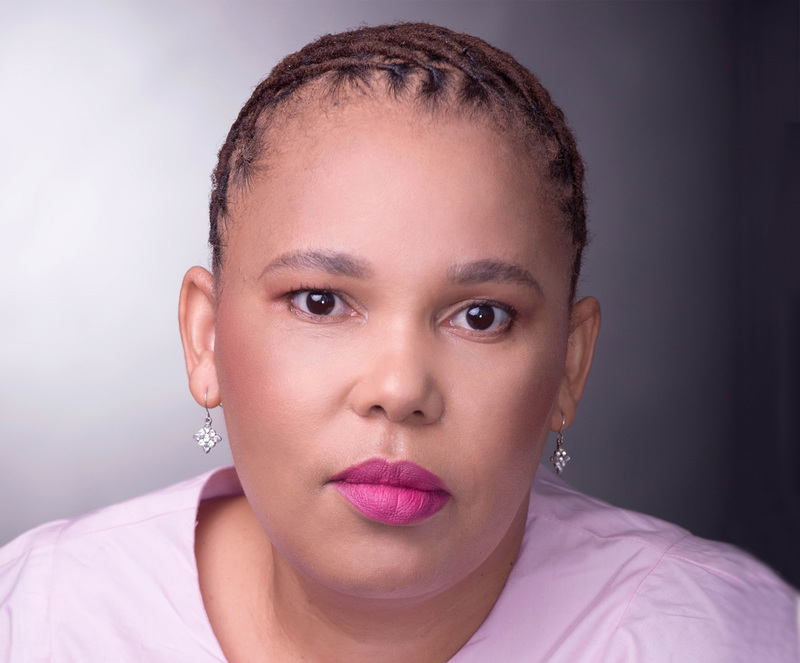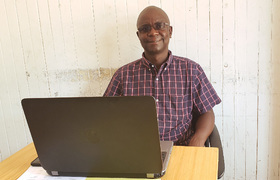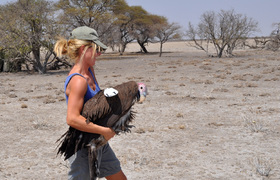Unspeakable tragedy yields master’s degree
11 December 2018 | Story Nadia Krige. Photo Supplied. Read time 7 min.
Two years ago, unspeakable tragedy struck Mabuyi Mhlanga’s family when her young daughter was hit by a car while crossing the road and died on the scene. Instead of shying away from the pain and grief, Mhlanga decided to seek answers and healing by throwing herself into a master’s degree related to road safety around schools.
It was a morning with a slight change in routine for the Mhlanga household, as the family prepared to tackle the day ahead. The difference was that this time they all piled into the same car for the school and work drop-offs.
“It was unusual. We never do that,” Mhlanga recalled.
“My husband dropped me off first and then turned around to take my daughter to school.”
At that moment, however, their daughter suddenly remembered that she needed something from her mother’s bag. She asked her father to stop the car, hopped out and crossed the road.
“She immediately just ran across the road. She was struck by a car that was coming and died on the scene with all of us – as a family – watching,” Mhlanga said.
“That’s when everything changed for me.”
Just a few months prior – in January of the same year – Mhlanga had enrolled for a civil engineering master’s programme in transport studies at the University of Cape Town (UCT). Having been appointed as the programme manager for eThekwini Municipality’s “Go! Durban” project, she wanted to expand her knowledge about transport in general, focusing specifically on rapid transport networks.
Even in the throes of grief following her daughter’s death, she somehow found the strength to forge ahead with her studies, submitting all her assignments on time.
But she was plagued by questions surrounding the circumstances of the tragedy.
“I had so many unanswered questions in my mind as to whether there was something I could have done to prevent it.”
Tackling road safety around schools
“I had so many unanswered questions in my mind as to whether there was something I could have done to prevent it,” she said.
“Being in the civil engineering industry as well, I wanted to know if there was something we as civil engineers were not doing.”
Instead of letting the questions overwhelm her, Mhlanga decided to channel her pain and grief into a new direction of study, turning her attention to road safety in the vicinity of schools.
“I wanted to investigate the road incidents around schools in eThekwini and whether or not the city can do something to improve road safety – especially within a kilometre or two of the school.”
She approached Associate Professor Marianne Vanderschuren from the UCT Department of Civil Engineering and asked her to supervise her study. Understandably, said Mhlanga, Vanderschuren had a few initial concerns about the sensitive nature of the topic, and took some convincing.
“I insisted and then she guided me through everything.”
Mind-blowing findings
What ensued was a series of – in Mhlanga’s words – “mind-blowing” findings.
Firstly, there was the fact that road traffic incidents are the second leading cause of death for children younger than 19 worldwide.
Secondly, even after being taught the basics of road safety in classrooms or at home, young children still lack the cognitive skills to connect their theoretical knowledge to real-life situations. Most accidents are caused by human behaviour, and that includes “dart-and-dash” incidents such as the one that left her family bereft.
“When I look back, as much as it pains me, I can actually see that behaviour in my daughter. She didn’t take time to look properly before crossing the road,” Mhlanga said.
Using information gathered from the eThekwini Transport Authority’s (ETA) databases, Mhlanga identified the 10 Durban primary schools with the highest rate of incidents, with her aim being to investigate the causes. She met principals to gain their perspectives and also surveyed the areas surrounding the schools to see what measures had been put in place to ensure road safety.
She found that there were speed bumps at most of these schools, but only on the roads that had a school gate. Other roads around the schools lacked road safety measures, in most instances, and signage and road markings to demarcate pedestrian crossings were inconsistently applied.
While doing this research, she also found that often schools with the highest incident rates were located within one kilometre of one another. This indicated that the chances of traffic accidents occurring increases in areas where there is a cluster of schools.
“In Australia and other countries, it’s a well-known concept where they demarcate an area of about two kilometres around primary schools and then they do full-on traffic calming.”
Practical outputs
What makes Mhlanga’s study especially valuable is that it holds a great deal of potential for driving practical changes.
“Since I work for the transport authority and my research was based on the information that the eThekwini Municipality collects, I presented my findings at the ETA annual conference, driven by the deputy head responsible for road safety, and made various proposals,” she said.
Her first proposal is to include practical road safety education in schools. This will involve taking the children out of their classrooms and to the roads, under adult supervision, to better understand the realities of the dangers they face when navigating traffic.
“My next recommendation is that we must adopt a school-zone concept,” said Mhlanga.
“In Australia and other countries, it’s a well-known concept where they demarcate an area of about two kilometres around primary schools and then they do full-on traffic calming in terms of speed bumps, reducing the speed limit and increasing enforcement around the schools.”
While one can never fully recover from the loss of a child, she said that doing this study and finding practical solutions has helped her find peace.
“I made sure that it would be something that would give me answers and also help me heal,” she said.
Mhlanga will be graduate on Thursday, 13 December, at the same ceremony where UCT Chancellor Graça Machel will be robing Vice-Chancellor Professor Mamokgethi Phakeng.
 This work is licensed under a Creative Commons Attribution-NoDerivatives 4.0 International License.
This work is licensed under a Creative Commons Attribution-NoDerivatives 4.0 International License.
Please view the republishing articles page for more information.










